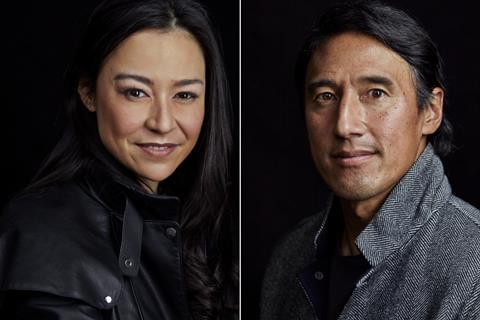
Oscar-winning Free Solo wife- and- husband directors Elizabeth Chai Vasarhelyi and Jimmy Chin debated the niceties of promoting one’s own work in a talk about their filmmaking careers - spotlighting the professional climbers who have been the subject of two of their films.
They were talking at an event in the CPH:Conference Artists & Auteurs series at CPH:Dox on March 21.
“There’s always been those athletes that were really good at self-promotion – leveraged what they did to make their career or start a business,” said Chin, who is also a professional climber. “But there’s also, within the inner circles of climbing, you call that person a ‘spray master’ – they’re constantly spraying about what they’ve done. It comes down more to personality than ethos.”
Vasarhelyi responded: “It’s really hard to hear this because I always used to think in my 20-year career that the work would speak for itself – that I would just put down and work really hard,” she said. “That’s not OK for women – you’ve got to self-advocate. Whenever I give talks, I say ladies, please self-advocate – whoever you are, self-advocate. Because people won’t necessarily notice.”
“I don’t disagree with that,” replied Chin, in the good-natured discussion.
Vasarhelyi and Chin are attending CPH:DOX with their fourth feature as co-directors: Wild Life, about the eco-activism of Doug Tompkins, the founder of North Face clothing brand. Tompkins died in a kayaking accident 2015, and was survived by his partner Kristine, who is a major part of the film.
“It was really nice to make a film with a woman at the centre of it,” said Vasarhelyi. “Ultimately she finds her voice and effects this monumental change.”
The director explained how important the subject matter was to her.
“I never want to make a film,” Vasarhelyi said of their process. “I dread making the film, and you keep saying no, no, no, until it’s so meaningful that you absolutely have to say yes. After Free Solo, we don’t know how many films we’re going to make in the rest of our career, and each film has to have great meaning to us.”
“We also do a lot of dividing and conquering, where we are able to literally be in two places at once,” added Chin. “One of the hardest jobs is our personal assistant, who tries to schedule calls for us. It’s pretty chaotic, but we’ve learned to take it day-by-day.”
“Day-by-day, he says,” responded Vasarhelyi. “I know what I’m doing every single day for the next three months.
National Geographic Films is releasing Wild Life in the US on April 14.
The duo discussed Endurance (working title), the film they have boarded through their National Geographic output deal, about acclaimed explorer Ernest Shackleton’s ship that sunk in 1915 and was finally discovered last year. Vasarhelyi and Chin will direct alongside the UK’s Natalie Hewit.
The project was first announced last year as part of the network’s Explorer series. It will now run as a feature, which is currently in production, and will debut exclusively on National Geographic channels and Disney+ at a date to-be-announced. It is produced by Ruth Johnston for Consequential, Vasarhelyi and Chin for their Little Monster Films, and Bob Eisenhardt. Executive producers are Dan Jones and Paul Woolf for Little Dot Studios, Consequential’s Ted Richane, History Hit’s Dan Snow and Bill Locke, Anna Barnes of Little Monster Films, and Carolyn Bernstein with National Geographic Documentary Films.
“[Shackleton] pre-sold the rights to his footage of his expedition in order to finance the expedition,” said Vasarhelyi in Copenhagen. “Which is interesting if you think back to 1916. And that’s why he brought a full film crew, that’s why this footage exists, because that was how they financed it.”
Climbing access
The pair also debated the effect their popular documentaries Meru and Free Solo have had on the climbing world.
“I like to think that back in the day, in the 60s, there’s a sense [climbing] was more pure, more authentic,” he said. “There was a lot more stoicism; people took pride in not necessarily publicising the things that they did.
“There was a culture of that when I came up in Yosemite – it was always about downplaying what you’d done. There were a lot of climbers who wouldn’t say anything about what they had done, and you would find out about it months or years later. People took pride in proving that they were just doing it for the love of the sport, and less about grand-ising themselves and making themselves heroic.”
“Are we sure it’s not a colonial, patriarchal legacy of the elite climbers from the very beginning, who promoted this ethos of not talking about it as the manliness of it? You were tough,” suggested Vasarhelyi, who advocated for wider access to the sport. “Now I think it’s been exploded – women are climbing, kids are climbing. The addition of women is a big deal. The culture is changing; I think it’s still celebrating the work, celebrating pushing yourself. It’s just how we talk about it – there’s more access. That’s our hope.”





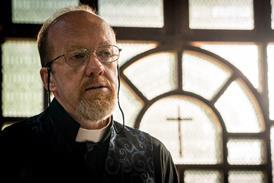








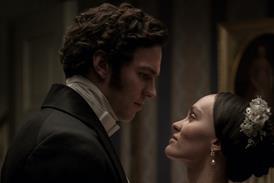
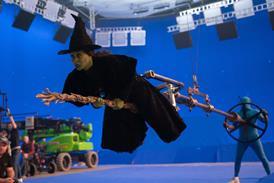
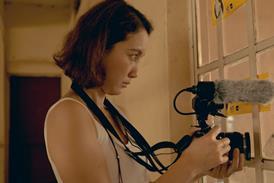
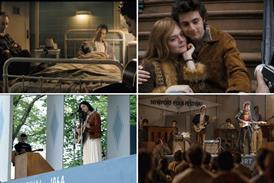







No comments yet